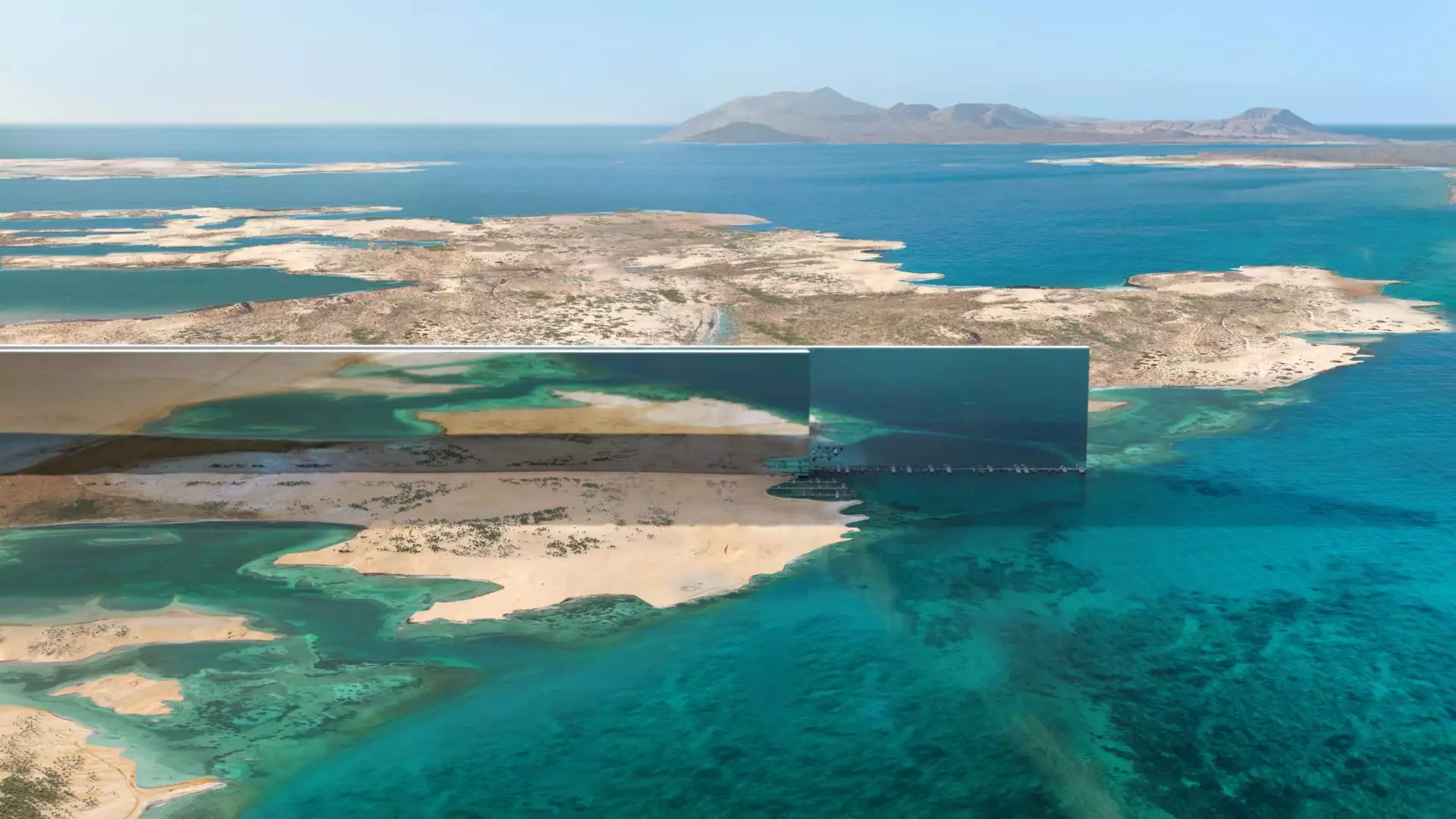Saudi Arabia’s Neom project, especially The Line, epitomized the modern obsession with grandeur—an audacious attempt to carve a new future amid desert sands. Promoted as a symbol of innovation and progress, it promised a sprawling metropolis of nine million residents fused with cutting-edge technology in a seamless, futuristic environment. Yet, beneath the veneer of ambition lies a fragile foundation vulnerable to economic realities and technological limitations. This project’s reassessment signals a crucial acknowledgment: not every lofty aspiration can withstand the brutal scrutiny of reality, especially in an era marked by fluctuating oil prices and mounting fiscal pressures.
What initially seemed like a visionary leap has now become painfully emblematic of overreach—a sprawling mirage built on optimistic projections and inflated expectations. The unwavering faith in technological possibility and unlimited funding, fueled by dreams of revolutionizing urban living and bolstering Saudi Arabia’s post-oil economy, ignored the steady erosion of economic sustainability. When mega-projects are driven primarily by prestige rather than practicality, their downfall becomes inevitable. The lesson here is not only about fiscal discipline but about understanding the limits of human and technological capability when dealing with large-scale transformations.
The False Promise of Perpetual Growth
At the core of Neom’s overconfidence lies a fundamental misjudgment of economic and technological feasibility. The Saudi government’s conviction that a city of nine million could be effortlessly constructed in the arid desert hub was rooted in an optimistic belief that technological innovation and immense capital could overcome natural and economic constraints. But the sharp decline in oil prices, dropping below $70 per barrel, lays bare the fragility of relying on resource wealth to sustain such massive financial commitments.
Furthermore, the project’s overly optimistic forecasts, touted by consultants eager to please their clients, have come under intense scrutiny. Critics argue that “yes-man” mentalities pervade the planning stages, where inflated revenue projections and rosy technological assumptions create an illusion of inevitability that simply doesn’t hold up under examination. This flawed approach risks not only financial wastage but also erodes trust in leadership and planning institutions. Reality does not bend to the whims of wishful thinking; it confronts us with constraints that must be acknowledged early and honestly.
Consequences of Overambition
The reassessment of The Line and the broader Neom project exemplifies a critical turning point. It reveals the peril inherent in large bucolic dreams built on a foundation of unchecked optimism. As Saudi Arabia tightens its fiscal belt—cutting back on extravagant spending—this initiative’s prospects are suddenly less certain, compelling leaders to prioritize pragmatism over spectacle. Job cuts across the development’s vast workforce are a stark indicator that reality is forcing a recalibration, shifting from unrelenting expansion to sustainable growth.
This shift has profound implications for stakeholders—domestic and international alike. It underscores the importance of building projects rooted in robust economic analysis, transparent governance, and adaptable planning. To merely continue on a diminished scale, however, does not diminish the broader lesson: visionary aspirations require humble grounding, especially when public funds, national pride, and technological ambitions intertwine.
The Risks of Overconfidence and the Path Forward
The boldness that once characterized Neom’s conception now risks turning into hubris. The allure of creating a utopian city—an emblem of progress—must be balanced against pragmatic constraints. Without this balance, projects like The Line drift toward becoming expensive failures, damaging not just finances but also national credibility.
Saudi Arabia’s current reevaluation offers a moment of critical reflection. It signals a need to temper expansive ambitions with sober assessment. For the kingdom, this is an opportunity to pivot toward smarter, achievable projects that serve the public interest and build meaningful economic resilience. The pursuit of technological innovation cannot be disconnected from economic realities; it must be pursued in a way that prioritizes sustainability and inclusivity, rather than mere spectacle.
Embracing a more cautious approach, one that embraces incremental progress and transparent oversight, can ensure that the kingdom’s ambitions are sustainable rather than destructive. While it is natural to dream big, the true test of leadership lies in adapting to circumstances, acknowledging limitations, and fostering trust through honesty and prudence. As the Neom saga unfolds, it serves as a stark reminder that even the most ambitious visions must be rooted in achievable realities, lest they crumble under the weight of their own hubris.


Leave a Reply